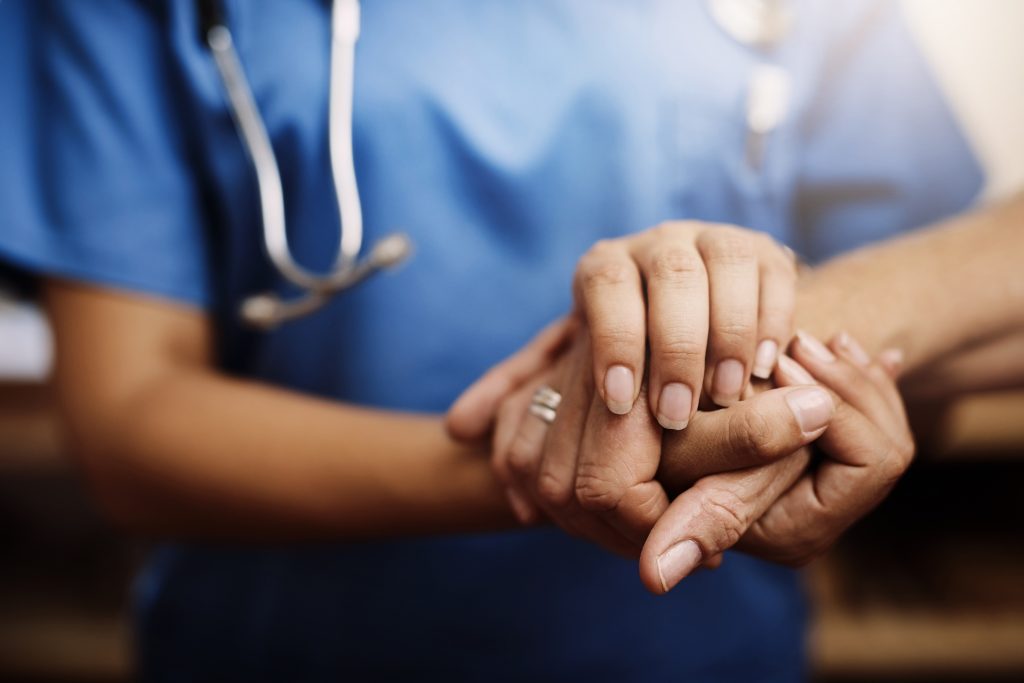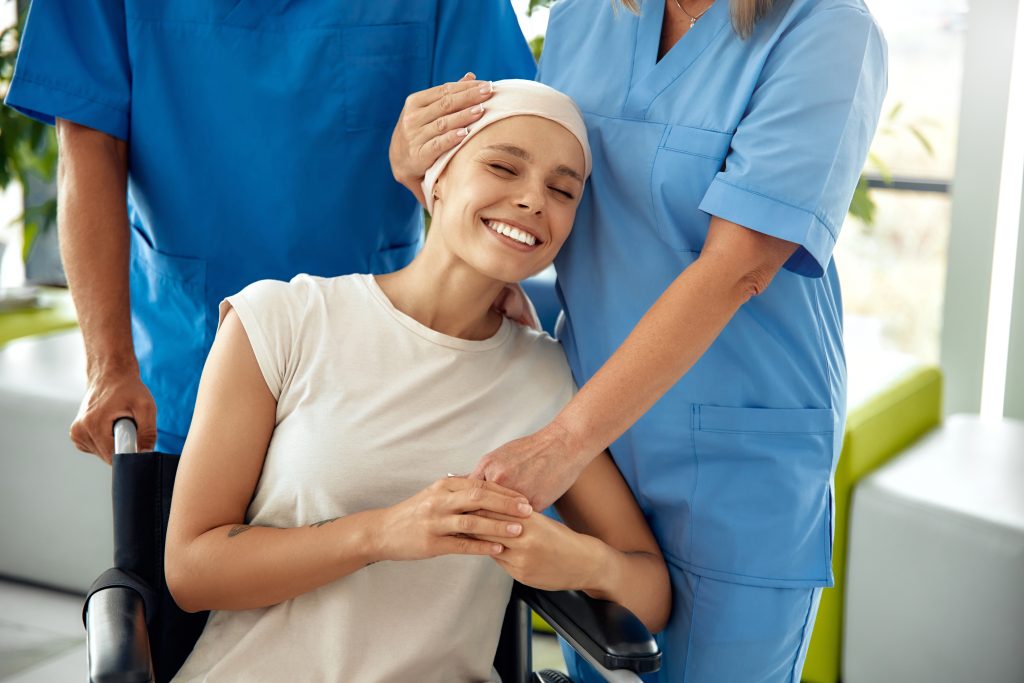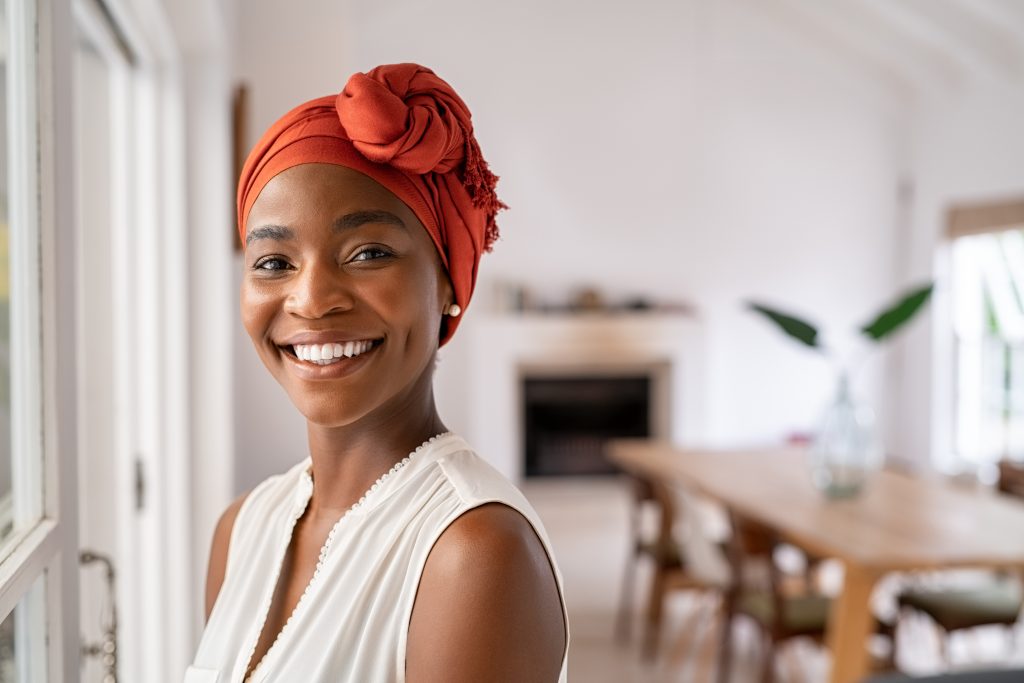Even though leukemia is more common in children than in adults, it can still affect people at every age. In fact, the risk of developing diseases such as cancer goes up with age.
Leukemia and old age certainly have a clear link. That’s why at the Cancer Center for Healing in Irvine, CA, we help people of all ages at every stage of life.
If old age is years down the road for you, then now is the perfect time to start prioritizing your health and make small changes to support your body—both now and into the future.
At the Cancer Center for Healing in Irvine, CA, we take a functional and integrative approach to managing health conditions such as leukemia—whether for old age or younger folks.
We believe that age is a factor in health but not a sole cause of health struggles or serious conditions such as leukemia. Lifestyle choices, immune function, toxin exposure, and chronic inflammation—among other things—play just as much of a part.
The Link Between Leukemia and Old Age
Leukemia is not a single disease but a group of blood cancers that affect the bone marrow and lymphatic system. While some types of leukemia are more common in children, the majority of cases—especially chronic leukemias—occur in older adults.
In fact, the average age at diagnosis for chronic lymphocytic leukemia (CLL), the most common type in adults, is around 70. This strong association between leukemia and old age raises an important question: Why does age increase the risk?
Why Does Leukemia Occur More Often in Old Age?
There are several key reasons why leukemia and old age are so closely tied:
- Declining Immune Function (Immunosenescence):
As we age, our immune systems become less efficient at detecting and destroying abnormal or mutated cells. This can allow cancerous cells to grow unchecked. - Cumulative DNA Damage:
Over time, the body is exposed to countless environmental toxins, chemicals, radiation, and oxidative stress. These exposures can lead to genetic mutations that increase cancer risk. - Bone Marrow Aging:
The bone marrow produces fewer healthy stem cells as we age, which may contribute to abnormal cell production seen in leukemia. - Chronic Inflammation:
Age-related inflammation, sometimes called “inflammaging,” plays a major role in many chronic conditions—including leukemia.
This is why the connection between leukemia and old age is not just chronological—it’s also biological.
Compounding Lifestyle Factors in Older Adults
While aging is inevitable, certain lifestyle factors can accelerate biological aging or increase the likelihood of disease. The intersection of leukemia and old age becomes even more significant when poor lifestyle habits are repeated over time.
Here are some common lifestyle contributors that compound with age:
1. Long-Term Poor Nutrition
Many older adults have eaten the Standard American Diet for decades—high in processed foods, low in fiber, and full of additives. This long-term nutrient depletion can weaken immune defenses and increase inflammation.
2. Toxic Accumulation
Repeated exposure to household chemicals, pesticides, heavy metals, and air pollution over a lifetime can impair liver detoxification and contribute to cancer risk. The body becomes less efficient at clearing toxins with age.
3. Chronic Stress and Poor Sleep
Stress and sleep deprivation affect the immune system and hormone balance. When these patterns are repeated for years, they become silent drivers of disease—especially when linked with leukemia and old age.
4. Sedentary Lifestyle
Decades of low physical activity can weaken circulation, reduce lymphatic drainage, and increase insulin resistance—all factors that may promote cancer cell development.
5. Smoking and Alcohol Use
The cumulative effects of smoking or regular alcohol intake become more damaging as we age. These habits are directly associated with increased cancer risk, including leukemia.
An Integrative Approach to Leukemia in Older Adults
At the Cancer Center for Healing, we recognize that addressing leukemia and old age requires more than medication. We take a comprehensive, personalized approach that supports the whole person—physically, emotionally, and spiritually.
Here’s how we help older adults with leukemia thrive:
- Detoxification Support:
We use advanced testing to identify toxin burdens and offer protocols such as infrared sauna therapy, lymphatic drainage, and antioxidant IVs to support elimination. - Immune System Strengthening:
Therapies such as ozone therapy, mistletoe injections, and IV vitamin C help modulate immune function. - Nutritional Counseling:
We tailor nutrition plans to the unique needs of aging bodies—emphasizing anti-inflammatory foods, gut health, and nutrient density. - Emotional Healing:
Older adults may carry decades of unresolved emotional trauma. We offer support through counseling, meditation, and energy-based therapies. - Advanced Technology with Gentle Care:
We use non-toxic cancer therapies such as hyperbaric oxygen, low-dose chemotherapy, and pulsed electromagnetic field (PEMF) therapy that are often better tolerated in older patients.
Whether you’re 65 or 85, the intersection of leukemia and old age does not mean you are out of options. On the contrary—our integrative model offers older adults renewed hope and strength.
Prevention Still Matters
Even for those not yet diagnosed, the connection between leukemia and old age highlights the importance of prevention. The earlier you begin supporting your body with clean nutrition, stress reduction, and detox support, the lower your lifetime risk may be.
At any age, you can…
- Eat more vegetables and antioxidant-rich foods
- Eliminate processed meats, sugars, and chemical additives
- Use clean personal care and household products
- Stay active and prioritize sleep
- Get regular testing to monitor immune health and toxin load
You’re Never Too Old to Heal
Yes, age increases the risk of leukemia—and other health conditions. But it’s not the end of your story.
Yes, leukemia and old age are connected. But at the Cancer Center for Healing in Irvine, CA, we believe in the body’s innate ability to heal itself even into later years.
We’re here to walk alongside you no matter your age. If you consider yourself part of the young crop, we’ll help you with a preventative approach to medicine. If you’re in an older age group, then we’re here to walk alongside you with compassion and cutting-edge therapies.
To learn more about our whole-body approach to leukemia and old age, visit: cancercenterforhealing.com/leukemia


















